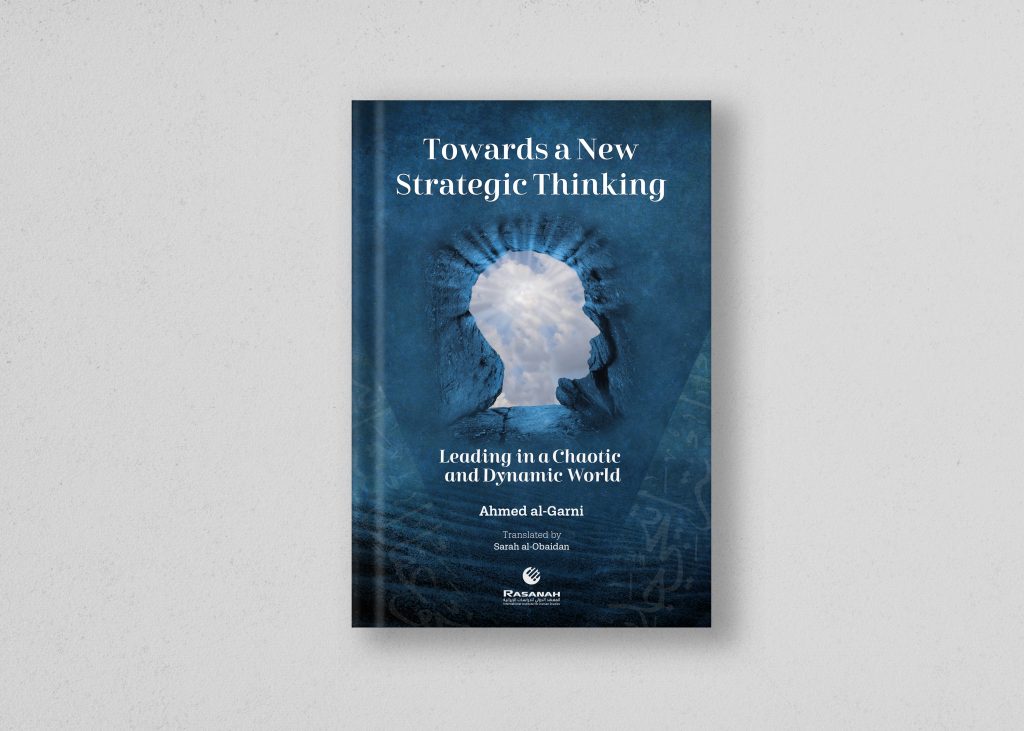The International Institute for Iranian Studies (Rasanah) has published a new book entitled Towards a New Strategic Thinking; Leading in a Chaotic and Dynamic World. Written originally in Arabic by Rasanah Vice President Dr. Ahmed al-Garni, the translated book features the author’s rich experience in strategy, providing a comprehensive account of the meanings of strategy and meticulously explaining how to use it as a tool to successfully navigate and forecast the increasing volatility in today’s globalized and rapidly evolving world. The author, who is also a nonresident fellow at Oxford University and an international relations expert, has written the book in five chapters.

The first chapter examines the original meaning of “strategy” as well as the inception, principles and development of this concept in Islamic thought and then in Western thought.
The second chapter discusses strategy functions and strategic reference points, i.e., sources from which a strategy can draw its legitimacy, values and sustainability, including state law, politics, culture, ethics, etc.
The third chapter highlights security challenges and threats resulting from globalization, terrorism and divergent ideologies, revivalist political Islam, proxy warfare and Shiite militarization. The chapter also delves deeper into the concept of security, tackling the challenges posed by societal aspirations and crises of a complex and unwieldy nature.
The fourth chapter addresses the development of a conducive environment for developing a strategic mindset which is reflected in public policy. The chapter urges security policymakers to shift away from the traditional concept of crisis management: a process in which security policymakers wait for a crisis to arise and then act, to a proactive and preventive approach in which signs and indicators of crises are monitored in advance to eradicate the root causes of a crisis and address them before the situation becomes uncontainable.
The fifth chapter is a case study dedicated to Saudi Arabia. The chapter explores the future of national identity and discourse in the country, highlighting how Saudi national identity has evolved over the years, how to leverage national power in a way that enhances foreign policy and the role of Vision 2030 as the basis of a new public image.

